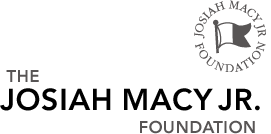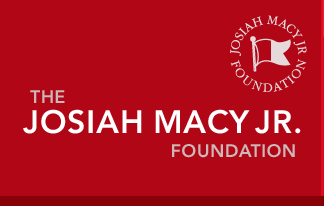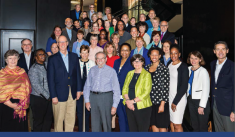Our Grantees
Across the Foundation’s priority areas, our grantees are working to improve the health of the public through innovative research and programs. The Foundation awards up to 40 grants on a rotating schedule each year.
Minority Faculty Development
According to the Association of American Medical Colleges the nation faces a severe shortage of minority faculty members who, at present, constitute approximately seven percent of the nation’s medical faculty. The Centers of Excellence Program (COE), funded by the Health Resources and Services Administration, has led the nation’s efforts to recruit and prepare under-represented minority physicians for faculty positions since 1993. Support from this program has helped participating schools both to recruit and to provide adequate mentoring for new minority faculty.
As of September 1, 2006, however, federal funding for the Centers of Excellence Program ends. Even though support from participating schools will continue, some aspects of the program are in jeopardy. This grant provides the “gap” funding needed to sustain the full program at four medical schools for three years while efforts are made to restore federal funding.
The request for support from the University of Pennsylvania was the first of several received by the Macy Foundation. Since the need for support went beyond a single institution, the Foundation asked Dr. Jerry Johnson, the initial applicant, to create a consortium of several regional programs with the expectation that this approach would allow member schools to combine their efforts to recruit and to help develop minority physicians and non-physician scientists for careers in academic medicine.
All of the Centers of Excellence programs in the northeast have joined this new consortium: the University of Pennsylvania, the Albert Einstein Medical School of Yeshiva University, the Mount Sinai School of Medicine, and the University of Medicine and Dentistry of New Jersey-New Jersey Medical School.
The consortium model offers a number of benefits. By working together, participating institutions can introduce trainees to areas they might not otherwise consider by expanding areas of expertise and experience, increasing the number and diversity of mentors and role models, enhancing the content of available training exercises in teaching and research, providing access to larger and different populations and databases for use in research, and expanding peer contacts.
The consortium will conduct a number of specific activities.
- During the first six months, members will develop a compendium of programs, mentors and resources at participating institutions to document complementary and distinct strengths.
- An annual three to five-day Faculty Development Institute for junior faculty and fellows will be held at a different school each year, with the first institute scheduled for 2007. Topics such as expectations of faculty, different types of faculty careers, design and evaluation of teaching programs and curricula, and research methods, among others, will be covered.
- A two-day minority Senior Faculty Leadership Institute is planned to prepare faculty members already at levels of associate or full professor for roles such as department chair, division chief or dean, with minority faculty role models from each of the participating institutions.
- Supplemental funding will be provided for career development in areas that do not usually receive adequate funding, such as release time for research by fellows and faculty not yet established as investigators and tuition for course work.
- Pilot research funds will be provided to generate preliminary research data required for competitive career development awards and other grants for two fellows per school each year. At least one of those fellows is to be mentored by a senior faculty member from one of the other schools in the consortium.
- Research opportunities will be offered lasting from 6 to 12 months, for minority fellows and faculty from other consortium members, though funding for these research exchanges is not covered by this grant.
The consortium also will provide a model for other universities faced with the challenge of recruiting and training minority faculty. The consortium’s efforts will concentrate on faculty development beginning at the fellow or post-doctoral level. Members will share training resources and techniques, exchange trainees, and co-sponsor programs to enhance individual programs. In addition, a minority senior faculty leadership program will be developed for mid-career faculty seeking senior positions.




 11.13.18
11.13.18